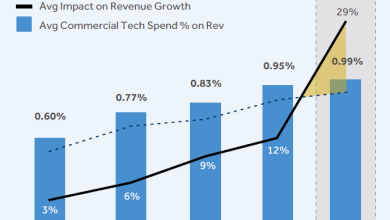
Online shopping is not a new trend. In fact, some of the most well-known online shopping destinations such as Amazon and eBay have been operating since the mid 1990s. During that time shopping habits have changed and, while big-ticket items are still not regularly bought online, consumers do purchase a wide range of products from their favourite e-tailers including groceries, clothing, electricals and video games.
As shopping online has continued to rise – over 2.14 billion people worldwide are expected to buy online this year according to Statista – it has contributed to the demise of the high street. To add salt to the high streets’ wounds, the outbreak of COVID-19 accelerated online sales as physical stores were forced to close to keep customers safe.
Kinguin.net, which is a digital marketplace for gamers, attributes some of its own recent growth to the pandemic – the result of increased adoption by gamers to buy online. The e-commerce platform sells a variety of digital products, including video games, gift cards, in-game items and computer software and services. During the pandemic, it saw a significant rise in the average daily visits of unique customers (+430%) to its website. It also received more than 500,000 new transactions monthly.
Since then and despite the high street opening up again, many consumers have become so accustomed to ordering their favourite brands from the comfort of their own home that there is a big question mark over what can now be deemed ‘normal’ when it comes to our shopping habits. In fact, research released late last year from the United Nations, shows that COVID-19 has changed shopping forever, with more than half of the survey’s respondents admitting to shopping online more frequently.
This shift means that traditional brick and mortar stores will need to rethink their offerings to claw back custom while online stores will have to continue to deliver a service that appeals to their tech-savvy audience to retain them.
Service is something traditional stores have spent years perfecting; so how does an online retailer compete to ensure brand loyalty and repeat custom? Simply put – it’s about offering personalisation.
Many e-commerce companies pride themselves on being able to give their customers what they want but to retain customer loyalty they need to continuously analyse data to evolve their offering and ensure it meets with expectations. A key reason for shopping online is choice and convenience but due to an often high volume of visitors and breadth of products, browsing and shopping online can sometimes be overwhelming.
Product recommendation is one route ensuring a higher standard of personalisation by helping customers discover products that match their tastes and preferences. But how does an e-commerce company deliver that experience to its online customers?
One existing platform that exists to support this is Google Recommendation AI. This software, which uses a deep learning model to analyse customer behaviour, is able to mimic the personal service offered in an offline shop. It can also deliver results at speed – Google Recommendation AI is able to process thousands of products at scale, personalising them in real-time. It can also make stock or price changes at a moment’s notice.
What many businesses are therefore realising is that using AI tools such as Google Recommendation AI can improve both customer experience and satisfaction. For Kinguin, who have been using this tool for over a year, search times have been shortened by 20 seconds, the average cart value has increased by 5 EUR and conversion rates have quadrupled since the outset. Click-thru rates have also doubled, increasing by 2.16 on product pages and 2.8 times on recommendations pages.
So what next?
The way we shop online continues to evolve and in the past year, more than any other, e-commerce brands have had to work hard to keep up with these changes. The introduction of AI has impacted so many areas – from chatbots and digital assistants to intelligent product search functions and now, tailored shopping experiences.
The brave new world where convenience and speed are the driving force behind our purchases will remain and consumer demands will continue to dictate how etailers respond to provide increasingly sophisticated service. For Kinguin this will be working with Google on version 2.0 of Google recommendation. It will be interesting to see how other companies evolve to enhance the user experience and ensure continued loyalty and satisfaction during every touchpoint of their customer’s journey.




